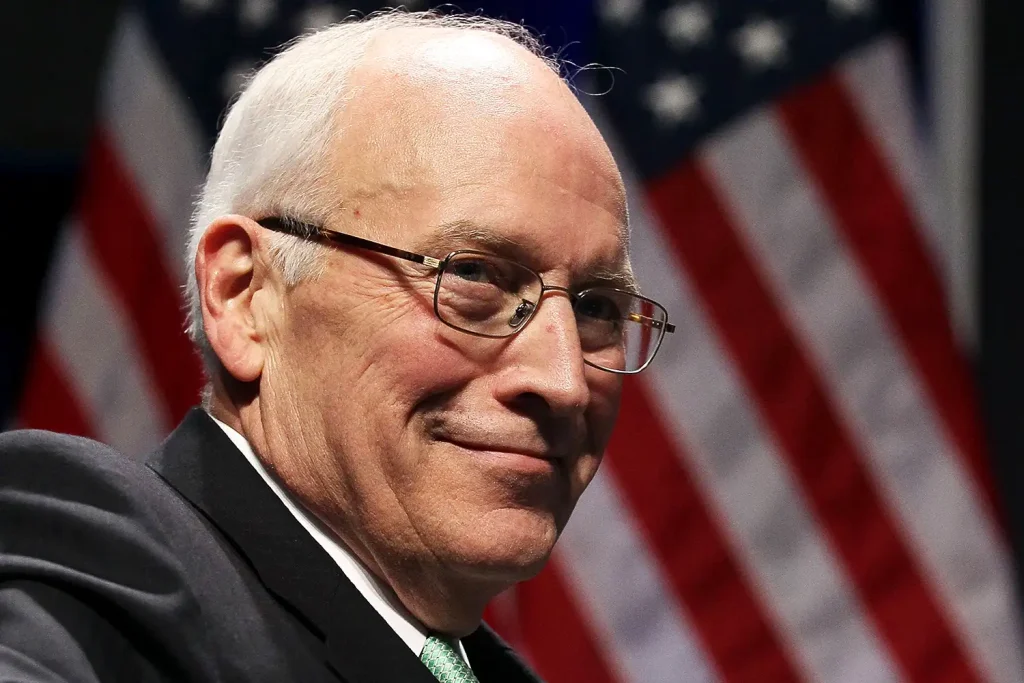Richard “Dick” Cheney, the Most Powerful Vice President in U.S. History, Dies at 84 — A Complex Legacy of Patriotism, Power and Controversy
Richard B. “Dick” Cheney, the 46th Vice President of the United States and one of the most consequential figures in recent American political history, died on Monday, November 3, 2025, at the age of 84, according to a statement released by his family. The family noted that Cheney passed away surrounded by loved ones and listed the cause of death as complications from pneumonia and cardiac and vascular disease.
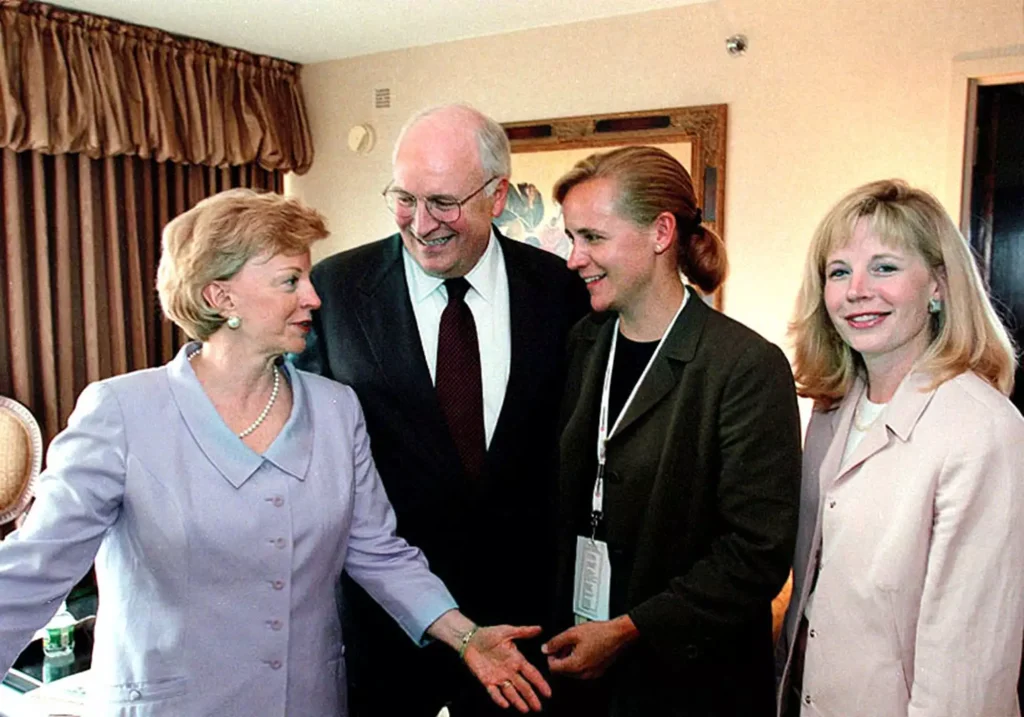
Born on January 30, 1941, in Lincoln, Nebraska, and raised in Casper, Wyoming, Cheney built a political career that spanned more than four decades and touched nearly every major office in Washington, from White House Chief of Staff to Congressman to Secretary of Defense and finally, Vice President. His path was shaped by early work in the Nixon and Ford administrations, service as a Wyoming congressman beginning in 1978, and his eventual selection in 2000 by then-Governor George W. Bush as his running mate.
As Vice President under President George W. Bush from 2001 to 2009, Cheney emerged—perhaps more than any previous occupant of the office—as a central figure with broad influence over national security, energy policy, and the powers of the executive branch. In the wake of the September 11, 2001, terrorist attacks, Cheney was instrumental in shaping the U.S. response, including the wars in Afghanistan and Iraq, the expansion of surveillance programs, and the redefinition of presidential authority in wartime.
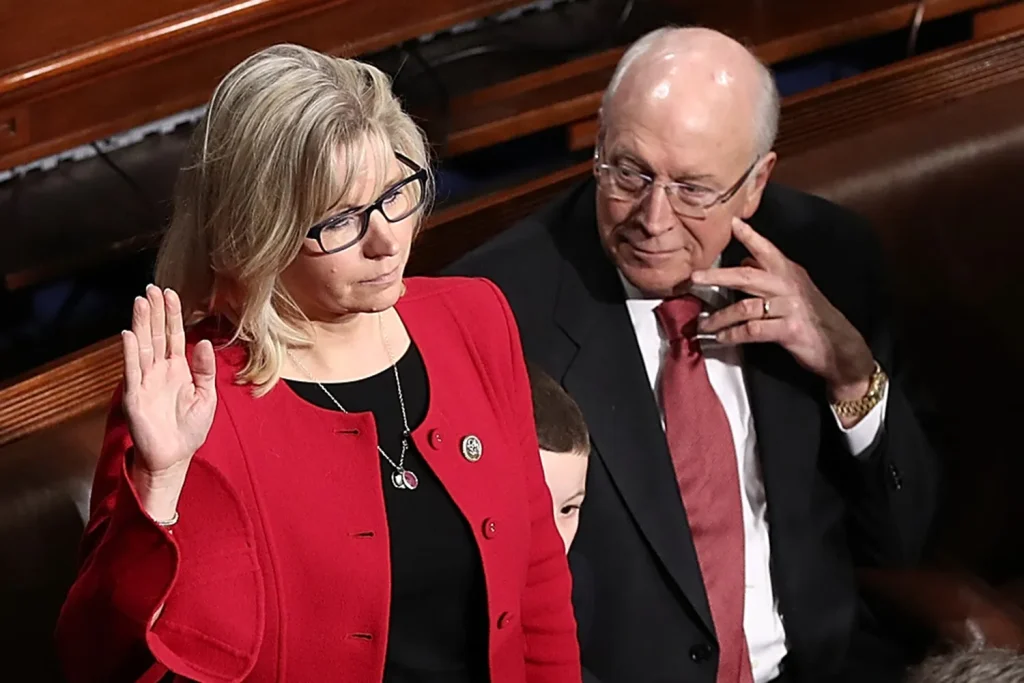
Yet his legacy is deeply contested. Supporters praise his unflagging commitment to national security and his stewardship during one of the most turbulent periods in modern American history. Critics point to the Iraq invasion, the use of enhanced interrogation techniques, and the expansion of executive power as symbolic of a dangerous shift in American governance. Cheney’s tenure remains one of the most debated in modern U.S. politics—a blend of fierce patriotism and controversial decision-making that defined an era.
Throughout his life, Cheney wrestled with serious health issues. He suffered his first heart attack at the age of 37 and endured five heart attacks over subsequent decades. In 2012, he underwent a heart transplant—an event that underscored both his fragility and resilience. The family’s statement paid tribute to his life and character: “Dick Cheney was a great and good man who taught his children and grandchildren to love our country, and to live lives of courage, honor, love, kindness, and fly-fishing.”
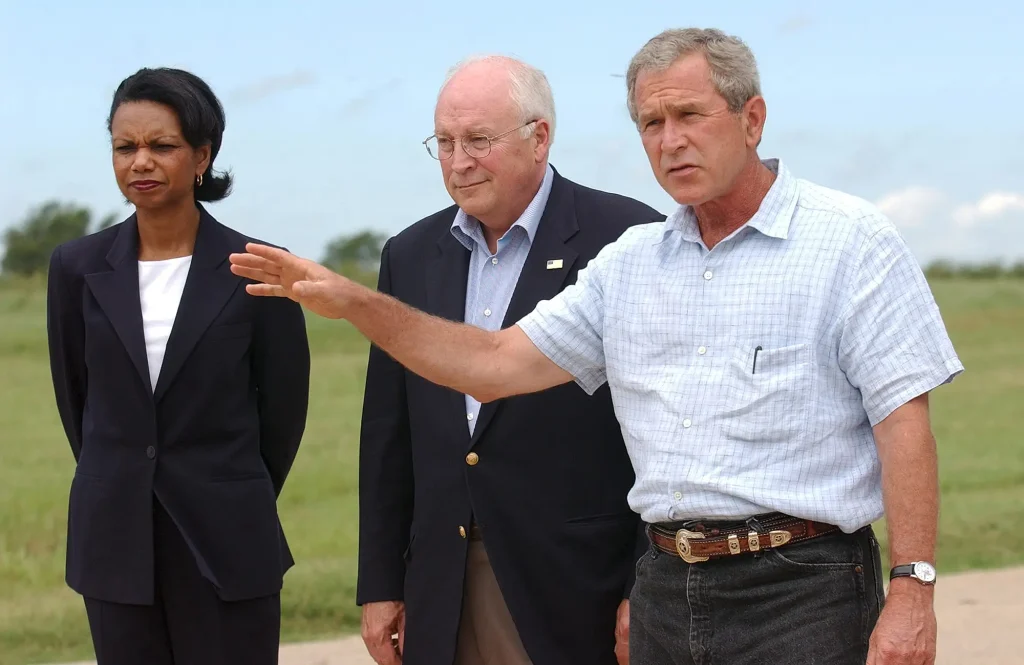
His wife of 61 years, Lynne Cheney, his daughters Liz and Mary, and seven grandchildren survive him. The news of Cheney’s death prompted a wave of reactions from across the political spectrum. Former President George W. Bush remembered his vice president as “among the finest public servants of his generation” and praised his “calm and steady presence” during the nation’s most trying days.
As the nation reflects on his passing, Cheney’s life story offers a complex lens into the challenges and ambitions of American leadership in the early 21st century. He operated at the intersection of war and peace, public duty and private struggle, ambition and endurance.
Before the vice presidency, Cheney’s record was already substantial. As Secretary of Defense under President George H.W. Bush from 1989 to 1993, he directed the U.S. military through Operation Desert Storm, leading coalition forces to a swift victory in the Gulf War. He played a pivotal role in reshaping U.S. military priorities following the Cold War, advocating for a smaller, more agile defense force adapted to the new geopolitical realities of the post-Soviet era.
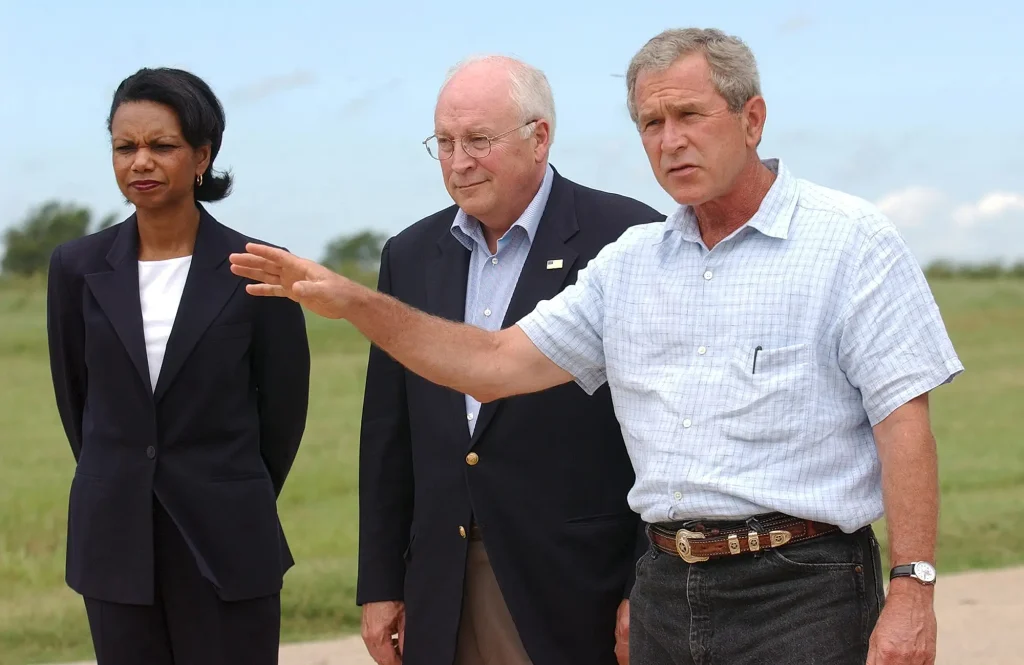
His earlier years in Congress had built his reputation as a pragmatic conservative, loyal to fiscal restraint and a strong defense. But his role as Vice President redefined the position itself. He wielded unprecedented influence over foreign policy, often attending intelligence briefings, participating in classified operations, and setting agendas traditionally reserved for presidents.
Cheney’s approach to power—quiet, strategic, and often behind the scenes—earned him both admiration and fear. To some, he was the architect of America’s modern national security infrastructure. To others, he was the embodiment of government secrecy and overreach. In his later years, he acknowledged these perceptions with characteristic wit, once jokingly referring to himself as “Darth Vader.”
Beyond Washington, Cheney’s personal life reflected a man of discipline and devotion. He loved the outdoors, particularly the rugged beauty of Wyoming, and was an avid hunter and fly-fisherman. Despite his high-profile image, he remained intensely private, rarely granting interviews and avoiding the limelight except when defending policies he believed in.
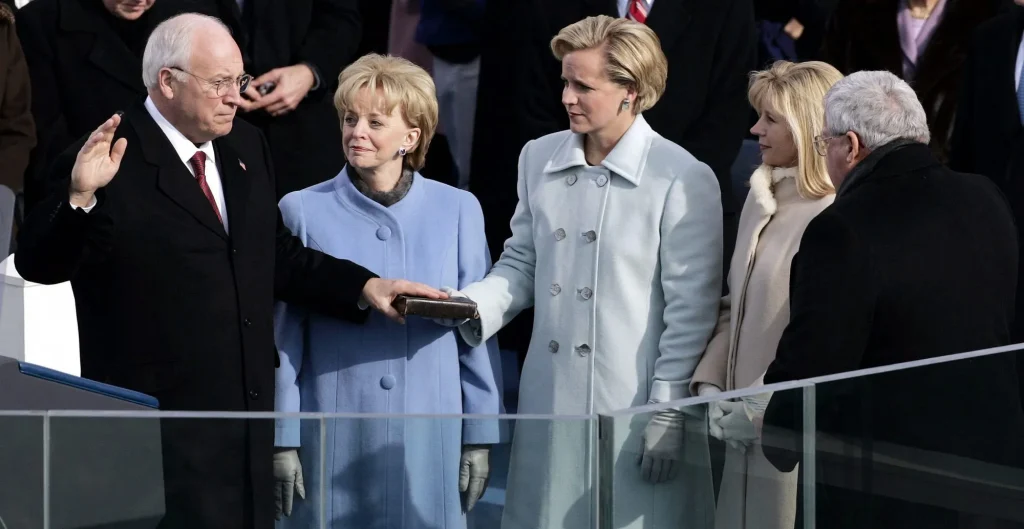
His relationship with his daughter Liz Cheney, who followed in his political footsteps and served as a U.S. Representative from Wyoming, highlighted both the familial and ideological legacy he left behind. Liz Cheney often cited her father’s principles—discipline, duty, and courage—as guiding influences in her own public life.
Dick Cheney’s career embodied a duality that defines much of American politics: the tension between security and freedom, secrecy and transparency, moral certainty and pragmatic necessity. Whether admired or condemned, his decisions reshaped U.S. foreign policy and internal governance for decades. His steadfast belief that protecting the nation justified decisive, sometimes controversial action, remains a defining hallmark of his era.
In his post-White House years, Cheney largely stepped away from public office but continued to speak out on national security and Republican politics. His memoir, In My Time, published in 2011, provided an unflinching defense of his record and a rare glimpse into his perspective on moments that changed the world. “I did what I believed was right,” he wrote, “and I would do it again.”
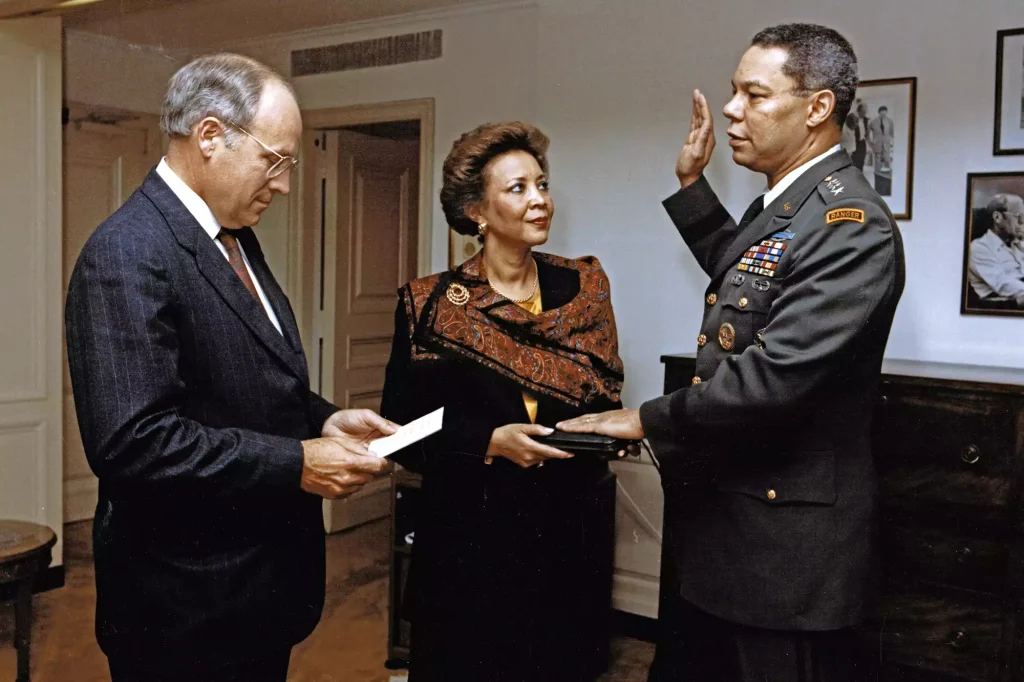
Health challenges did little to diminish his sense of purpose. Following his heart transplant, he often remarked on the gift of life and the gratitude he felt for medical science and his donor. Despite recurring hospitalizations in his later years, he maintained a routine filled with reading, writing, and spending time with his grandchildren.
Cheney’s passing at 84 brings an end to a life of remarkable consequence—a man who shaped events as much as he was shaped by them. His influence on American foreign policy, military doctrine, and executive power remains indelible. To admirers, he was a patriot who prioritized safety and strength over popularity. To critics, he was a cautionary tale of concentrated power and moral compromise.
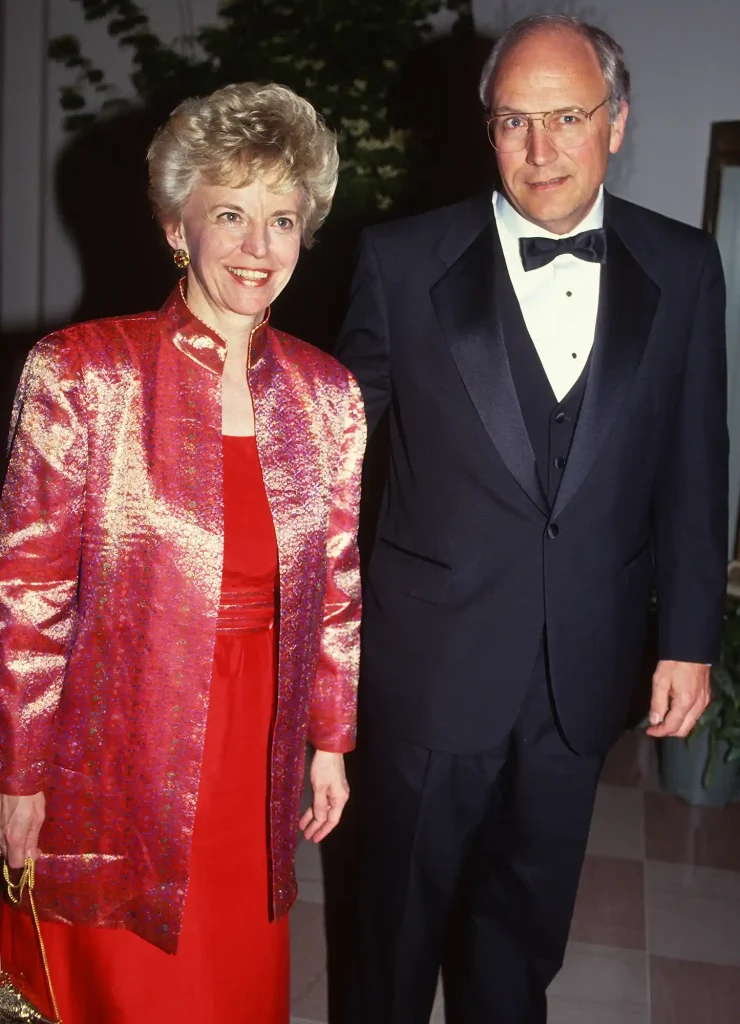
Either way, Dick Cheney’s legacy is inseparable from the story of America in the first quarter of the 21st century: its triumphs, its fears, its ambitions, and its reckoning. As his family, friends, and former colleagues mourn his loss, the image that endures is that of a man unshaken by controversy, convinced of his duty, and loyal to the end.
